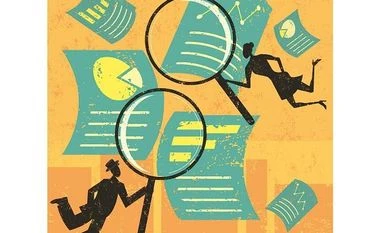The Comptroller and Auditor General of India (CAG), in its latest report on general and social sector for the year ended March 2020, said that over 4,500 acres of landed properties of six temples in Odisha are under encroachment.
The CAG has conducted audit of the records of 13 temples of the state and it observed that of the total landed property of 12,767.679 acres of these temples, only 5,749.464 acres (45.03 per cent) were under their possession and 35.28 per cent of the land was under encroachment.
According to the report, the highest 4,030.78 acres of land belonging to Debottar Dhenkanal is under encroachment. Similarly, 296.664 acres of Jagannath Ballav Math, 139.330 acres of Thakur Mahal, 36.370 acres of Sri Lingaraj Temple, 0.070 acres of Maa Mangala Temple and 0.657 acres of Maa Samaleswari Temple are under encroachment.
Among the remaining seven audited temples, no land has been found to be encroached in four cases while the three other Religious Institutions (RI) don't have the data. While only four RIs were in possession of all their landed properties, two RIs (Maa Mangala and Maa Sarala Temples) were not fully aware of the extent of possession of the landed property, the CAG said.
"Further, the extent of encroachment of landed property was also not known in respect of three RIs. Therefore, 7,018.215 acres of land were not under possession of the respective seven RIs. Thus, the RIs concerned were not aware of the status of more than half of their properties which were not under their possession," it said.
Moreover, although the Sri Lingaraj Temple owns landed properties across the state, it was aware of possession and encroachment related to the city of Bhubaneswar only. Information on ownership and encroachment of land at other places were not known to the temple administration.
More From This Section
Executive officer, Sri Lingaraj Temple informed the audit that 36.370 acres out of 69.423 acres of land in Bhubaneswar were under encroachment.
"Failure to trace and track properties owned by these RIs bears the risk of the ownership of property getting changed over a course of time or it becoming more difficult to recover the encroached land," the CAG observed.
--IANS
bbm/shb/
)